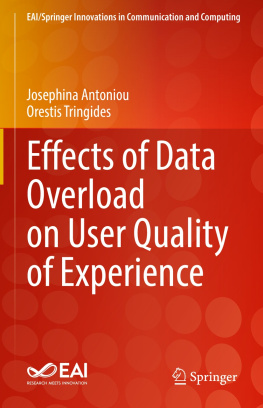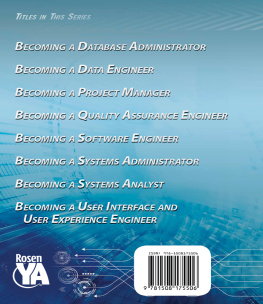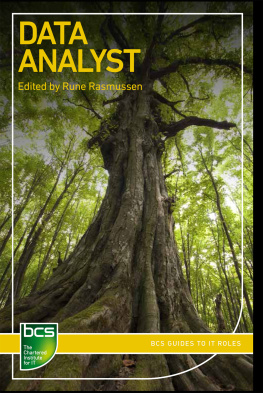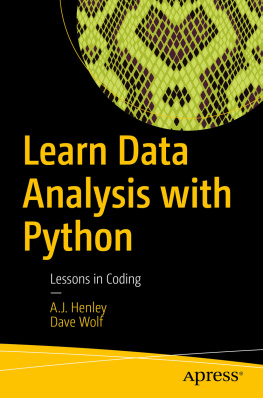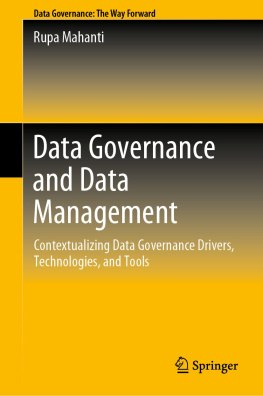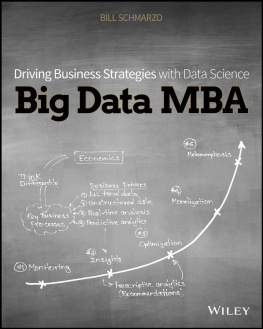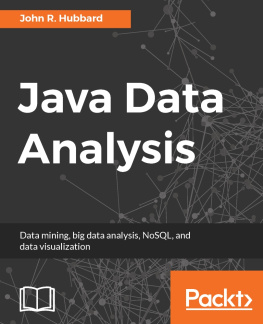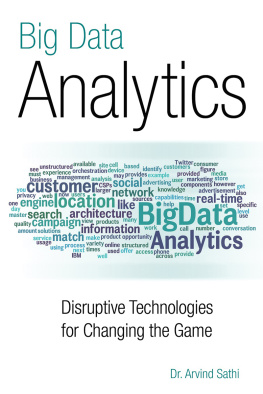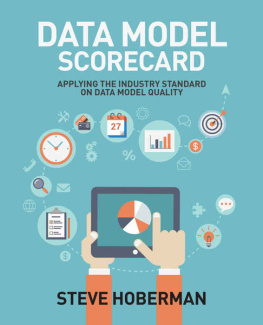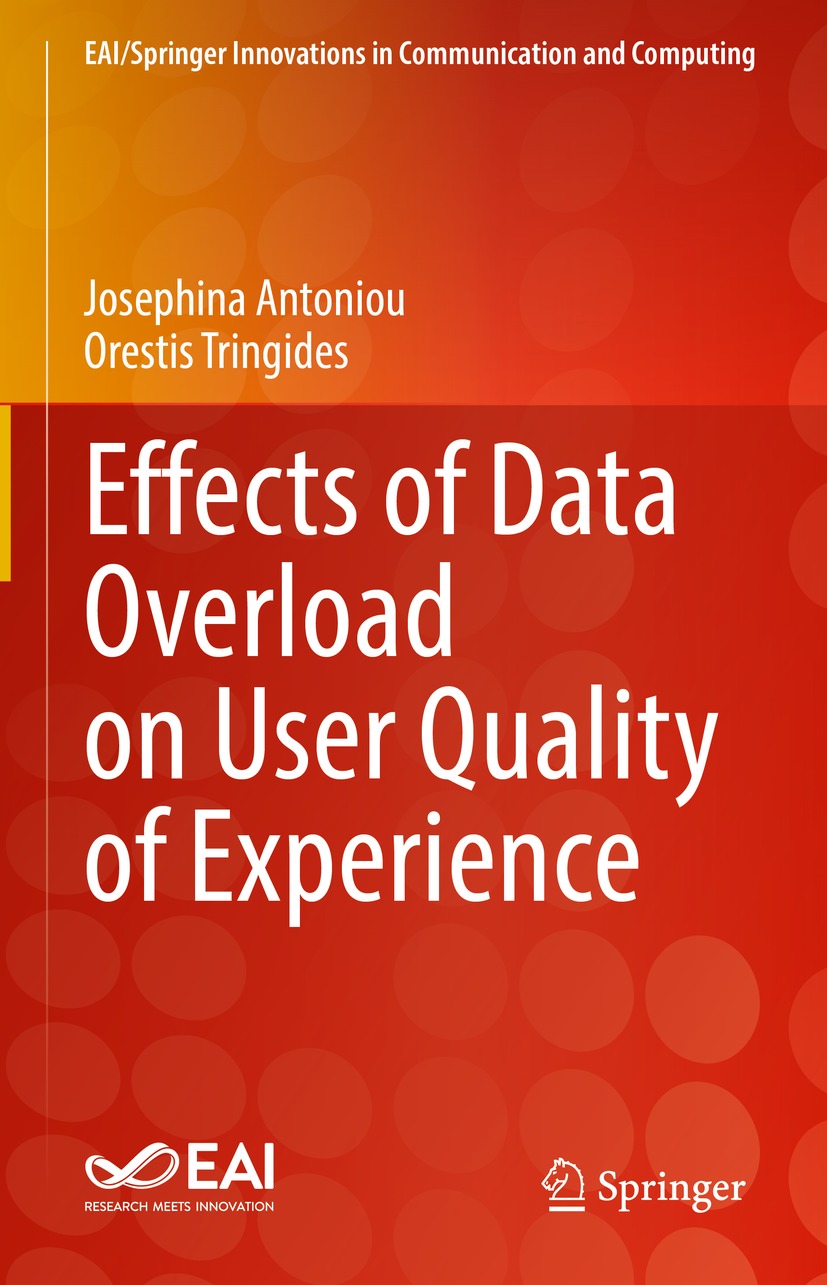EAI/Springer Innovations in Communication and Computing
Series Editor
Imrich Chlamtac
European Alliance for Innovation, Ghent, Belgium
The impact of information technologies is creating a new world yet not fully understood. The extent and speed of economic, life style and social changes already perceived in everyday life is hard to estimate without understanding the technological driving forces behind it. This series presents contributed volumes featuring the latest research and development in the various information engineering technologies that play a key role in this process. The range of topics, focusing primarily on communications and computing engineering include, but are not limited to, wireless networks; mobile communication; design and learning; gaming; interaction; e-health and pervasive healthcare; energy management; smart grids; internet of things; cognitive radio networks; computation; cloud computing; ubiquitous connectivity, and in mode general smart living, smart cities, Internet of Things and more. The series publishes a combination of expanded papers selected from hosted and sponsored European Alliance for Innovation (EAI) conferences that present cutting edge, global research as well as provide new perspectives on traditional related engineering fields. This content, complemented with open calls for contribution of book titles and individual chapters, together maintain Springers and EAIs high standards of academic excellence. The audience for the books consists of researchers, industry professionals, advanced level students as well as practitioners in related fields of activity include information and communication specialists, security experts, economists, urban planners, doctors, and in general representatives in all those walks of life affected ad contributing to the information revolution.
Indexing: This series is indexed in Scopus, Ei Compendex, and zbMATH.
About EAI - EAI is a grassroots member organization initiated through cooperation between businesses, public, private and government organizations to address the global challenges of Europes future competitiveness and link the European Research community with its counterparts around the globe. EAI reaches out to hundreds of thousands of individual subscribers on all continents and collaborates with an institutional member base including Fortune 500 companies, government organizations, and educational institutions, provide a free research and innovation platform. Through its open free membership model EAI promotes a new research and innovation culture based on collaboration, connectivity and recognition of excellence by community.
More information about this series at https://link.springer.com/bookseries/15427
Josephina Antoniou and Orestis Tringides
Effects of Data Overload on User Quality of Experience

The Springer logo.

Josephina Antoniou
School of Sciences, University of Central Lancashire, Larnaka, Cyprus
Orestis Tringides
COMMEDIA, Nicosia, Cyprus
ISSN 2522-8595 e-ISSN 2522-8609
EAI/Springer Innovations in Communication and Computing
ISBN 978-3-031-06869-0 e-ISBN 978-3-031-06870-6
https://doi.org/10.1007/978-3-031-06870-6
The Editor(s) (if applicable) and The Author(s), under exclusive license to Springer Nature Switzerland AG 2023
This work is subject to copyright. All rights are solely and exclusively licensed by the Publisher, whether the whole or part of the material is concerned, specifically the rights of translation, reprinting, reuse of illustrations, recitation, broadcasting, reproduction on microfilms or in any other physical way, and transmission or information storage and retrieval, electronic adaptation, computer software, or by similar or dissimilar methodology now known or hereafter developed.
The use of general descriptive names, registered names, trademarks, service marks, etc. in this publication does not imply, even in the absence of a specific statement, that such names are exempt from the relevant protective laws and regulations and therefore free for general use.
The publisher, the authors and the editors are safe to assume that the advice and information in this book are believed to be true and accurate at the date of publication. Neither the publisher nor the authors or the editors give a warranty, expressed or implied, with respect to the material contained herein or for any errors or omissions that may have been made. The publisher remains neutral with regard to jurisdictional claims in published maps and institutional affiliations.
This Springer imprint is published by the registered company Springer Nature Switzerland AG
The registered company address is: Gewerbestrasse 11, 6330 Cham, Switzerland
Preface
This book introduces a unique perspective on the use of data from popular emerging technologies and the consequent effect on user quality of experience. The term data is refined into specific flavours of data such as financial data, personal data, public data, context data, generated data, and the ever-so-popular big data. As different flavours of data have different uses, the book tries to focus on ways that data is responsibly used, and thus domains such as ethics and wellbeing are taken into consideration.
Moreover, the specific nuances of different technologies bring forth interesting case studies, which, in some cases, the book tries to break down into mathematical models so that they can be analysed using theoretical tools, e.g., game theory. At the same time a detailed state-of-the-art account is provided for each specific data perspective. Hence, the book offers a unique point of view on the use of data and the resulting quality of experience (QoE), through a set of chapters that can benefit researchers, educators and students in fields related to ICT studies especially where there is additional interest in emerging technologies, ethics and well-being, user experience, and the role of data management. Specifically, the book teaches the reader how to approach specific scenarios related to the above-mentioned aspects, oftentimes using game theoretic tools, while at the same time exploring current trends in state-of-the-art emerging technologies and consequent use of data. The analysis of specific scenarios aims at highlighting the responsible use of these technologies, especially as this relates to user QoE. The book may additionally benefit other stakeholders such as policymakers and system developers.
Overall, this book covers a variety of emerging technology examples and provides an updated technology review of a number of emerging technologies that share the characteristic that there is significant use of data (personal, financial, generated, etc.), which may impact the user QoE. Furthermore, it provides new mathematical example models of scenarios with the above-mentioned emerging technologies, in an attempt to further explore the technologies themselves and to resolve some of the data-related issues, while simultaneously elaborating on both a technical and a non-technical perspective to highlight the inter-disciplinary nature of these issues and the need to revisit them from different points of view.

